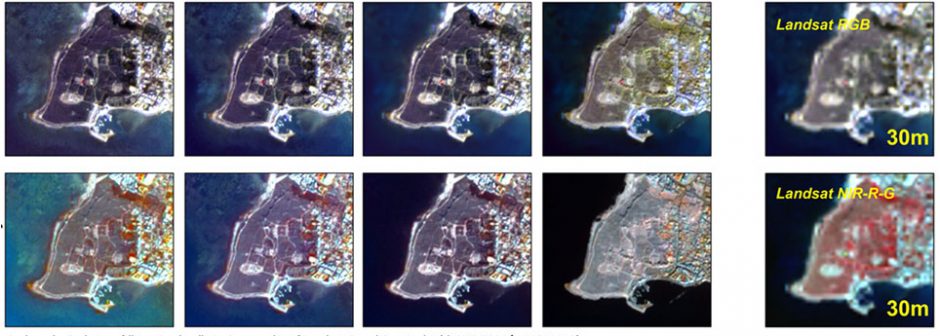The NAVIGATOR project seeks to exploit Earth Observation datasets in addressing Cultural Heritage needs, capitalising on the European Copernicus space program. Copernicus is the European program for observing and monitoring the Earth, and it consists of a complex set of systems which collect data from multiple sources, namely Earth Observation satellites (e.g. Sentinels) and ground sensors (e.g. ground stations, airborne, sea-borne sensors). It processes these data and provides users with reliable and up-to-date information through a set of services related to environmental and security issues. Based on these services and the data collected through the Sentinels and the contributing missions, many added-value services can be tailored to specific public or commercial needs, resulting in new business opportunities.
The NAVIGATOR project is implemented under the “Excellence Hubs” Programme within the “RESTART 2016-2020” funding framework for Research, Technological Development and Innovation (RTDI) administered by Cyprus’s Research and Innovation Foundation. Programme “Excellence Hubs” aims at promoting, bottom-up, scientific excellence through funding frontier research projects, possibly intersectoral and interdisciplinary, in cutting-edge fields.
The NAVIGATOR proposal was ranked 2nd (score 14.82/15) out of a total of 124 proposals submitted under the “Physical Sciences and Engineering” scientific area. NAVIGATOR project has a duration of 24 months, starting as from October 2019, with an overall budget of €250k.
NAVIGATOR aims to maximise the impact of Copernicus Earth Observation data for Cultural Heritage, providing innovative solutions and methodologies.
The project is being co-funded by the Republic of Cyprus and the Structural Funds of the European Union in Cyprus under the Research and Innovation Foundation grant agreement EXCELLENCE/0918/0052 (Copernicus Earth Observation Big Data for Cultural Heritage).

